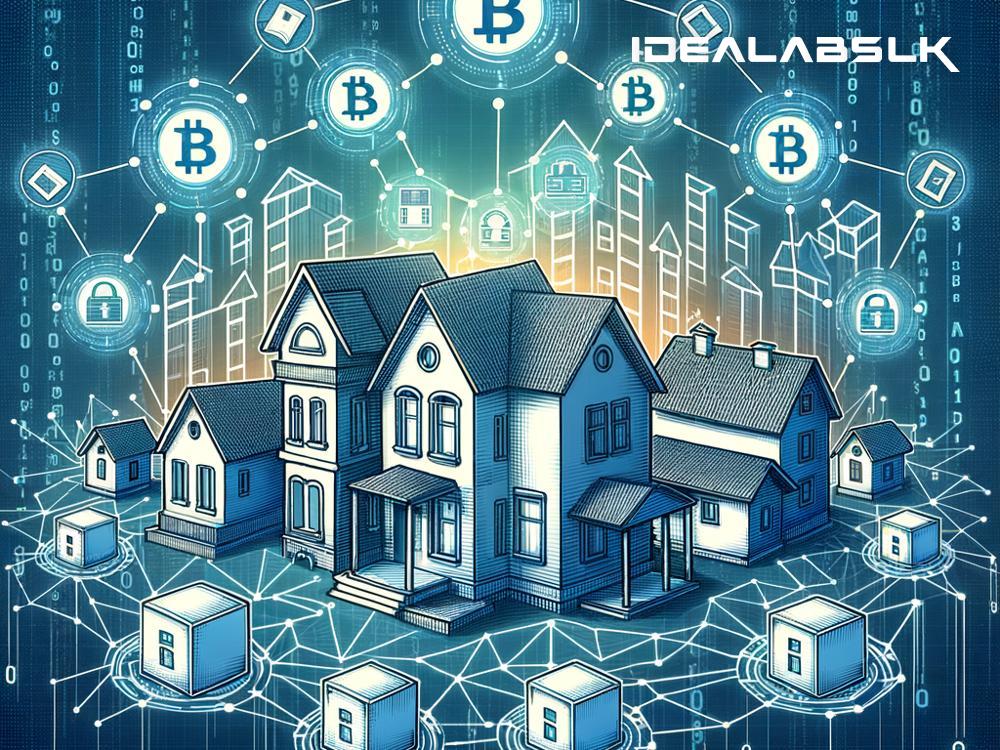Blockchain in Real Estate: Securing Digital Property Transactions
In today's fast-paced digital world, technology is continually reshaping the way we do almost everything, and the real estate industry is no exception. One of the most exciting technological breakthroughs transforming the real estate sector is blockchain technology. But what is blockchain, and how is it changing the game for property transactions? Let's dive into the world of real estate on the blockchain, breaking down the complexities into simple English.
What is Blockchain?
Imagine blockchain as a digital ledger or a record book that's accessible online. Unlike a conventional record book kept in a bank or a lawyer's office, this digital ledger is not controlled by a single person or organization. Instead, it's distributed across several computers worldwide, making it nearly impossible to tamper with. Every transaction recorded in this ledger is secured and transparent, ensuring a high level of trust and security.
Blockchain and Real Estate: A Perfect Match
The process of buying or selling a property involves various steps - from verifying the ownership and the history of the property to ensuring the transaction's financial aspects are clear. Traditionally, these processes are not only time-consuming but also filled with paperwork and the potential for fraud. Here's where blockchain comes into play, promising a smoother, more secure, and efficient way to handle property transactions.
1. Fast and Secure Transactions
Blockchain can significantly speed up the real estate transaction process. Since the records on a blockchain are verified and accessible to all parties involved, the need for middlemen like notaries, lawyers, and banks gets reduced. This not only cuts down the time involved in the transaction but also reduces the costs associated with these intermediaries.
2. Eliminating Fraud
One of the biggest concerns in real estate transactions is fraud, often involving forged documents or the sale of nonexistent properties. Blockchain, with its secure and unchangeable record-keeping, nearly eliminates the possibility of such frauds. Once a property's details are recorded on a blockchain, altering or forging these records becomes practically impossible, thus ensuring the authenticity of the transaction.
3. Property Titles on Blockchain
Property titles represent ownership of real estate and are essential in any property transaction. Storing these titles on a blockchain could revolutionize how we handle property ownership. With blockchain, every change in ownership would be recorded securely and transparently, making title searches quick and undeniable. This reduces the risk of disputes over property ownership and makes the process of buying or selling real estate much smoother.
4. Tokenization of Real Estate
Blockchain opens up the fascinating possibility of real estate tokenization. This means breaking down the value of a property into digital tokens that can be bought and sold on the blockchain. This approach could make real estate investments more accessible to a broader range of people, offering a way into the market without needing to buy a whole property. Investors could purchase tokens representing a share of a property and benefit from rental income or appreciation in property value, making real estate investment more democratic.
Challenges Ahead
While the potential of blockchain in real estate is immense, there are still hurdles to overcome. Regulatory acceptance varies across different regions, and there's a need for a legal framework that recognizes blockchain transactions. Additionally, the real estate industry has been slow to adopt new technologies, and shifting to a blockchain-based system will require significant changes in traditional processes.
The Future is Blockchain
Despite these challenges, the move towards integrating blockchain into real estate transactions seems inevitable. Its benefits in terms of security, efficiency, and accessibility are too significant to ignore. As more stakeholders in the real estate industry recognize these advantages, we can expect blockchain to become a central element in the future of property transactions.
In conclusion, blockchain technology promises to make real estate transactions more secure, transparent, and efficient. By streamlining processes and reducing fraud, blockchain has the potential to save time and money for buyers, sellers, and investors alike. While there are still obstacles to its full adoption, the future of real estate on the blockchain looks bright, opening new opportunities for investment and making property transactions accessible to more people than ever before. The integration of blockchain into real estate is more than just a trend; it's a revolution in the making.

